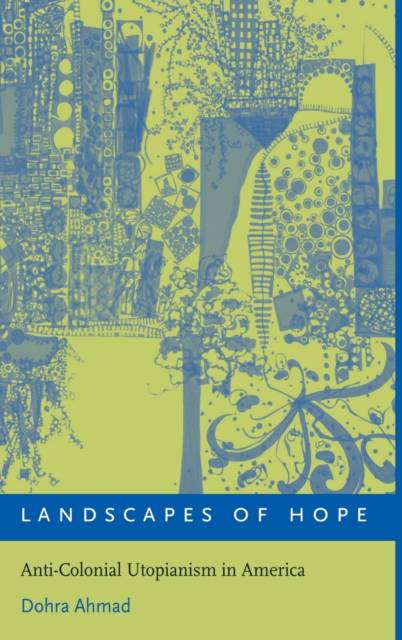
Door een staking bij bpost kan je online bestelling op dit moment iets langer onderweg zijn dan voorzien. Dringend iets nodig? Onze winkels ontvangen jou met open armen!
- Afhalen na 1 uur in een winkel met voorraad
- Gratis thuislevering in België vanaf € 30
- Ruim aanbod met 7 miljoen producten
Door een staking bij bpost kan je online bestelling op dit moment iets langer onderweg zijn dan voorzien. Dringend iets nodig? Onze winkels ontvangen jou met open armen!
- Afhalen na 1 uur in een winkel met voorraad
- Gratis thuislevering in België vanaf € 30
- Ruim aanbod met 7 miljoen producten
Zoeken
€ 126,95
+ 253 punten
Omschrijving
Landscapes of Hope: Anti-Colonial Utopianism in America examines anti-colonial discourse during the understudied but critical period before World War Two, with a specific focus on writers and activists based in the United States. Dohra Ahmad adds to the fields of American Studies, utopian studies, and postcolonial theory by situating this growing anti-colonial literature as part of an American utopian tradition. In the key early decades of the twentieth century, Ahmad shows, the intellectuals of the colonized world carried out the heady work of imagining independent states, often from a position of exile. Faced with that daunting task, many of them composed literary texts--novels, poems, contemplative essays--in order to conceptualize the new societies they sought. Beginning by exploring some of the conventions of American utopian fiction at the turn of the century, Landscapes of Hope goes on to show the surprising ways in which writers such as W.E B. Du Bois, Pauline Hopkins,
Rabindranath Tagore, and Punjabi nationalist Lala Lajpat Rai appropriated and adapted those utopian conventions toward their own end of global colored emancipation.
Rabindranath Tagore, and Punjabi nationalist Lala Lajpat Rai appropriated and adapted those utopian conventions toward their own end of global colored emancipation.
Specificaties
Betrokkenen
- Auteur(s):
- Uitgeverij:
Inhoud
- Aantal bladzijden:
- 264
- Taal:
- Engels
Eigenschappen
- Productcode (EAN):
- 9780195332766
- Verschijningsdatum:
- 2/03/2009
- Uitvoering:
- Hardcover
- Formaat:
- Genaaid
- Afmetingen:
- 234 mm x 157 mm
- Gewicht:
- 516 g

Alleen bij Standaard Boekhandel
+ 253 punten op je klantenkaart van Standaard Boekhandel
Beoordelingen
We publiceren alleen reviews die voldoen aan de voorwaarden voor reviews. Bekijk onze voorwaarden voor reviews.











